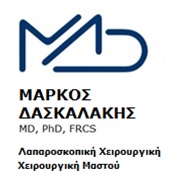Mounting evidence suggests that the mechanisms of weight loss and the improvement in glucose metabolism seen after LSG are related not only to gastric restriction but also to neurohormonal changes.
Methods
Fasting and postprandial levels at 60 and 120 minutes after a standard test meal of the above peptides and glucose metabolism indices were evaluated in 15 consecutive morbidly obese (MO) subjects before and 6 and 12 months after LSG. As study controls, 15 lean subjects matched for age and sex were also assessed.
Results
Body mass index values notably decreased at 6 and 12 months (P < 0.01), postoperatively. In addition, an overall improvement of the glycemic profile of MO patients was noted. After LSG, markedly decreased fasting and postprandial levels of ghrelin, amylin, and leptin were observed. A significant postprandial increase of PYY and GLP-1 levels was also noted postoperatively. Interestingly, significantly increased levels of PP were noted only at 60 minutes postprandially after LSG.
Conslusions
LSG markedly improved glucose homeostasis and generated significant changes in ghrelin, PP, PYY, GLP-1, amylin, and leptin levels. These multiple hormonal actions may have several beneficial effects on the underlying mechanism of weight loss, demonstrating that LSG could be more than just a restrictive bariatric operation.
Publication date: 2013/4/1- Journal: Annals of surgery - Publisher: LWW
Authors: Efstathios Dimitriadis, Markos Daskalakis, Marilena Kampa, Anastasia Peppe, John A Papadakis, John Melissas



